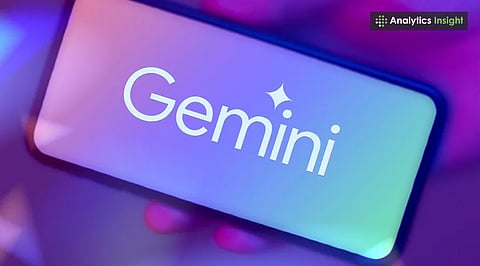

Google Gemini AI comes with strong security, but it still raises privacy concerns.
Ethical challenges, such as bias and misuse, remain under debate.
Safe use depends on the responsible deployment of AI and user awareness.
Artificial intelligence models are evolving to become smarter and faster than ever. Google's Gemini AI exemplifies this technological revolution. The chatbot can process text-based requests, images, and other complex tasks, generating appropriate responses within seconds.
While Gemini's impressive capabilities raise important questions about privacy and the ethical use of customer data, it is essential to address these issues. This article explores the Google Gemini AI safety concerns and the ethical implications associated with using such advanced technology.
Billions of users use Gemini AI every day for research, health tips, and brainstorming business ideas. All these interactions feed the model with critical user information, which can sometimes be sensitive and personal, and should not be shared with third parties.
Users need to have a clear understanding of how Google or Gemini AI will use their data and if it will be shared with any other third-party applications. Furthermore, there is always the risk of data theft and system breaches, which leave user data vulnerable.
Also Read: Gemini AI Saree Trend Rules Instagram; But are Your Photos Really Safe?
Security is one of the most crucial considerations when it comes to public AI models, such as Gemini. The model depends on large volumes of information to personalize responses and function effectively. However, if this data is not governed properly, it could be an easy target for hackers and unauthorized access.
While Google claims Gemini AI implements top-notch security measures, online systems are not entirely free of risks.
Privacy is another primary concern in widespread AI adoption. These advanced models often require user-specific data to provide relevant answers. This leads to questions such as:
How much user data is collected?
Where is the data stored and for how long?
Who has access to it, and how is it used?
Google claims that users’ privacy is the company’s top priority; however, people remain skeptical. Large organizations are not usually transparent about their policies. There is always fine print that most users miss. Instances such as private chats with ChatGPT leaking across the internet have made users more cautious about data privacy.
Also Read: Google to Rely on User Data to Train Gemini, Here’s How to Stop It
Apart from security and privacy, Gemini raises ethical concerns, as the LLM has the power to manipulate decisions and opinions subtly, and even poses a threat to job markets. Some major issues to consider include:
Bias and Unfair Results: If the training data used for Gemini AI is biased, then the system will produce misleading results.
Large-Scale Job Loss: As AI becomes more capable, it might replace many human jobs, creating social and economic challenges.
These are some reasons why there is a need for rules and regulations to monitor the responsible use of advanced technology.
Here are some measures implemented by the company to ensure user data safety:
Intense Testing: Internal teams at Google are trying to make the AI fail to spot any problems before the model goes live.
Stopping Misinformation: The tech giant has set up filters to avoid displaying harmful or false information.
User Controls: Google provides users with the flexibility of choosing how their data is used.
While these efforts are essential, experts believe that external audits and stricter AI regulations are necessary to maintain accountability.
The answer to this question depends on how users engage with the platform. Gemini is safer than earlier models; however, no system is flawless. It is likely suitable for everyday tasks such as learning, writing, or coding. Nevertheless, when it comes to matters involving money, health, or legal issues, users should be cautious about sharing sensitive information. Educating people on the ethical and responsible use of AI is just as important as developing better AI models.
1. Is Google Gemini AI completely safe to use?
Google Gemini AI is designed with safety measures, but no system is 100% risk-free.
2. Does Gemini AI collect user data?
Yes, it processes data to achieve better results, but Google claims that strict privacy policies apply.
3. Can Gemini AI be hacked?
Like any online system, it carries risks; however, Google has implemented strong security layers.
4. What are the biggest concerns with Gemini AI?
Privacy, data misuse, ethical issues, and potential bias in outputs are the primary concerns.
5. How is Google addressing safety in Gemini AI?
Through red-teaming, content filters, and user controls for more secure use.
